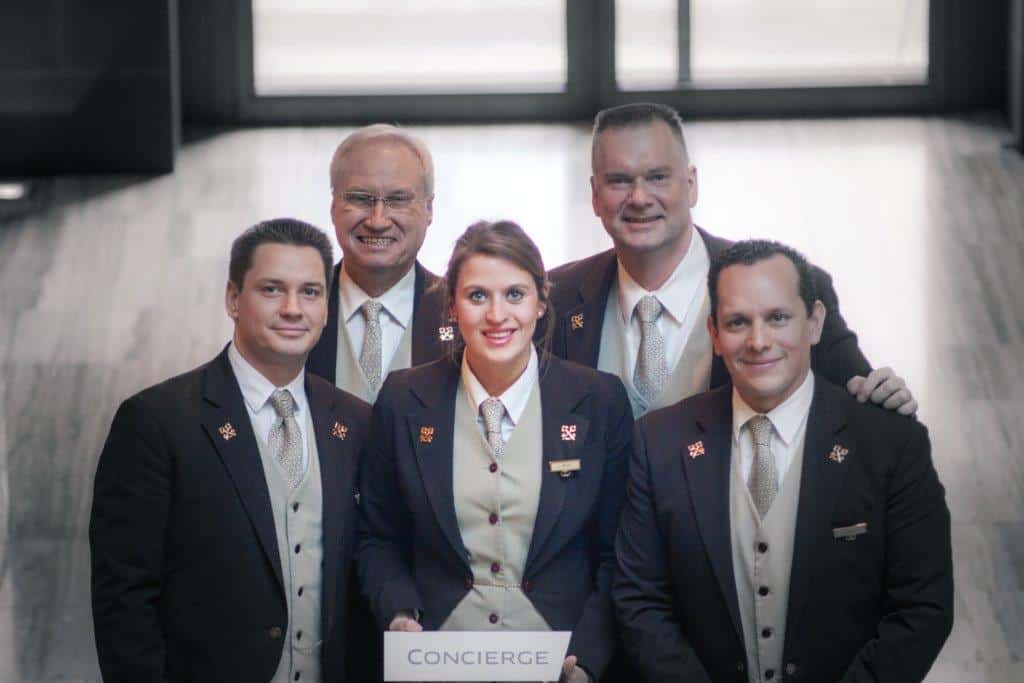Hamburg, Germany – 3 May 2017 –
The arc of suspense becomes critical: Within the current election debate to transition the weekly working hours in the hospitality and gastronomy industry, shows that young people are willing and able to work more than 12 hours per day, elder staff on the other hand doesn’t favor it. What is economically necessary, can become a real issue for the daily HR Management. How do you get the interest of young and elder team members on one page, this is the question within the so called demographic management.
With the meaning of demographic change the need for an effective action plan is growing. “Demographic-Management means to march forward while keeping an eye on the periphery” says Regina Ruppert, Vice President of the Federation of German Consultants. Rudolf Kast, chairman of the Demographic-Network ddn complements: “Demographic-Management has become a competing factor”. Not only the enhancing lack of trained staff, but as well the changing customer relationship and the internationalization of many business areas require a more flexible and diverse employee structure.
“How can work 4.0 be shaped? Teams become more agile, more international, work location-independent, borders between work and casual time become blurred” states Sabine Voermans, Head of the Health Management at insurance group TK. “That is why we need new approaches for the workplace health promotion”.
Work environment of the future: Every second company is lacking a sustainable employee strategy. Those in charge of employees and HR-professionals are facing turbulent times. Demography, digitalization and industry 4.0, value changes as well as a borderless mobility are changing the work environment. According to the Manpower Group Germany every second company is lacking a sustainable employee strategy. Meaning a base to adequately prepare for the working environment of the future is missing.
The Manpower Group Germany has analyzed and published a study about the central drivers, trends and challenges of the working environment. Based on this, a five-score-plan can be derived for the HR-agenda:
1. Professionalize HR work
Companies with a sustainable employee strategy know which employees they will need in the future and which skills they have to own.
2. Internalize value change
The young professionals of the generation Y differ from the Babyboomers. They frequently change jobs and don’t coercively choose the company that offers the highest salary. Additionally the customers is no longer more important than the employee. During Human Age appreciation and a harmonic cooperation are key factors to obtain and keep talents. Offering child care, Sabbaticals, Health programs and CRS initiatives are becoming more important.
3. Activate underestimated ressources
About twelve percent of working women would like to increase their working hours. Potential exists by integrating people above the age of 55 and of people with an handicap. To do so individual concepts are necessary such as more flexible working hours, home office, job sharing- and crowdsourcing modules as well as investments in inclusion projects.
4. Recruiting digitalization
Within the job market of the future it is no longer sufficient to publish employment ads. Every sixth person searching for a job uses career networks such as Xing or LinkedIn. Almost every 10th person willing to switch jobs is looking on Facebook for employers. Nevertheless, only every second German company actively uses social media recruitment.
5. Investing in systematic qualifications
Advanced training and further education in companies are in comparison to schools and apprenticeships often not structured. With aimed staff development the share of remotely qualified staff could be reduced by ten to twenty percent. Leaders in talent management notice executive managers among themselves and foster digital knowledge and collaborative working styles among the leaders of tomorrow.


